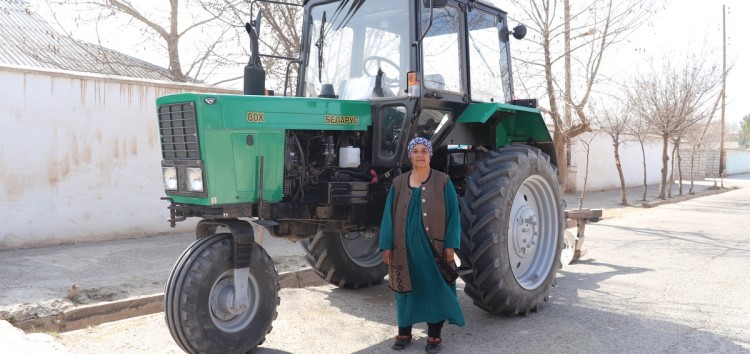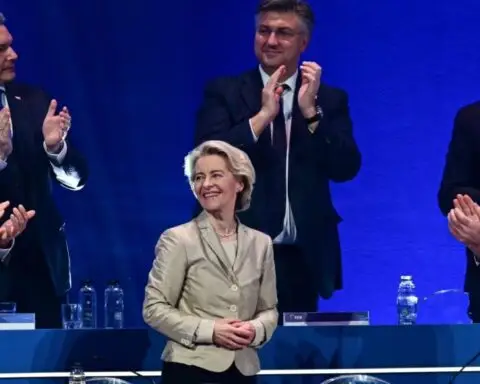A female agri-entrepreneur, Shamsihol Sultonova owns a farm in the Shahritus region of Tajikistan. She grows cotton and vegetables that are well sought after on the market.
“Our products are mainly bought by wholesalers; they come, load and carry our produce for sale in the capital. It is no secret that residents of Dushanbe prefer local products,”, says Ms Sultonova.
Ms Sultonova grew up in a farmer’s family and her parents helped her master the agricultural craft; now she is passing on her knowledge to her five children and 11 grandchildren. Under Ms Sultonova’s watch, the family business expanded from a modest four-hectare plot of land to a 35-hectare farm.
To keep the crops nurtured and growing, 28 full-time employees work throughout the year. During peak seasons, such as the harvesting of cotton or other crops, the farm employs 60 to 70 seasonal workers, around 70 per-cent are female. Still, this is not enough to sustain the expansion of the farm.
The EBRD, European Union (EU), Green Climate Fund (GCF) and the Republic of Korea (ROK), under the Green Economy Financing Facility, support small and medium-sized entrepreneurs, such as Ms Sultonova, with their ambition to grow their businesses by making them more climate-friendly and resilient.
Agricultural challenges
Agriculture accounts for more than half of total employment, but due to high out-migration rates of working age men, agricultural labour has become increasingly feminised.
The lack of access to financial support remains a problem encountered by farmers in Tajikistan. Female farmers face additional challenges such as limited land ownership and barriers to accessing finance and employment.
GEFF promotes green finance through awareness-raising campaigns, workshops and capacity-building initiatives, together with local partner banks. These activities promote the equal access of women and men to green finance, low-carbon technologies and entrepreneurship opportunities – Ms Sultonova is a role model to many.
“Having a tractor on the farm plays a decisive role in providing technical resources that help to maximise the production of agricultural products, especially in a competitive environment. A tractor can solve a farmer’s problems,” explains Ms Sultonova.
Ms Sultonova would regularly rent a tractor from her neighbours for ploughing, soil preparation, planting, dissemination of mineral fertilisers and inter-row soil processing. The costs were substantial.
“If you lease the tractor for the whole day, you can earn approximately 2,000 somoni (equivalent to US$ 175) a day. For example, the cultivation of one hectare is 250 to 300 somoni and to plough one hectare is 500 to 600 somoni,” explains Ms Sultonova.
Accessing finance for green growth
The desire to grow her farm and earn extra income from leasing a tractor to the local community led Ms Sultonova to the EBRD.
“In March 2020 I invested in an energy-efficient tractor and I am really pleased with this decision. The grant support from the EU helped us a lot,” she says.
The benefits are numerous, adds Ms Sultonova: “Our new tractor uses at least 20 per cent less fuel compared with the old model. It really saves a lot of fuel and money. Our neighbours want to rent this tractor in order to save fuel. Another benefit is that the tractor increases the volume of work and increases the profit. One new tractor equates to the manual work of 100 people. This tractor can do everything.”
Ms Sultonova’s ambition for green growth and further cooperation with the EBRD does not stop there: “I am planning to expand the farm, build a greenhouse, make more profit and hire more female workers, it will provide income opportunities to women in the village as well.”
Ayten Rustamova, EBRD Head of Tajikistan, said: “We are very happy to work with our local and international partners on the Green Economy Financing Facility, which tackles the very pressing challenges Tajik farmers face today. GEFF aims to support female and male entrepreneurs, increase access to finance and climate mitigation and adaptation technologies. This programme increases lending to the real economy, provides technical assistance and will also help banks and microfinance institutions analyse what can be done to further support female entrepreneurial talent.”






